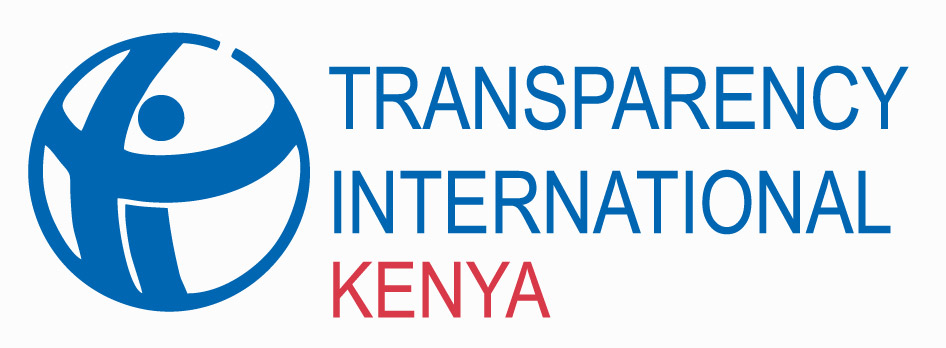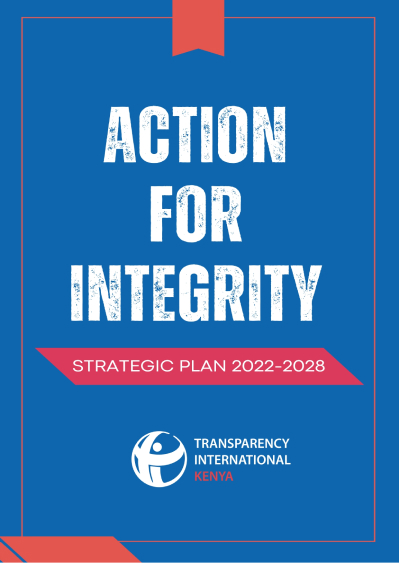Transparency International Kenya has released the findings of the Traffic Legislation Gaps and Drivers of Corruption in Traffic Matters Report. The report is a compilation of feedback received from key stakeholders in the transport sector including, but not limited to, the National Police Service, Nairobi Traffic Marshalls, long distance truck drivers and Matatu Owners Association. It focuses on audit of the key issues on traffic matters and offers an evaluation of key contributors of corruption in traffic matters.
The study provides information on available laws, policies, and regulations that govern traffic related issues, in order to identify the existing gaps, possible causes of corruption in traffic matters, and provide recommendations on how the identified gaps can be addressed.
Methodology
This survey was carried out in Nairobi City County and neighbouring counties of Kiambu, Kajiado and Machakos. Some 246 respondents, selected through purposive sampling, were reached.
Summary of the Findings
- Traffic laws/legal framework in traffic matters
- Most of the respondents showed knowledge of Kenya traffic laws as well as the legal requirements to become a driver or a rider. Most of the respondents also indicated that the problem is not the laws but, rather their enforcement. There has been little training on traffic laws among the respondents by NTSA and NPS.
- Judicial processes and relationship to corruption
The audit established various undertakings by the judiciary in handling traffic matters including development of guidelines for handling traffic matters especially minor offences so as to curb corruption in traffic matters.
- Despite efforts by the judiciary aimed at discouraging corruption in traffic matters, most participants, that is, 80% of the long distance drivers, 86% of the matatu drivers, 86% of bodaboda riders and 89% of taxi drivers, indicated that they prefer to resolve matters outside courts due to collusion at the courts.
According to the respondents, every stage of the judicial process provides an avenue for corruption. Some of the respondents claimed that registry clerks collude with the prosecutor while the prosecutor colludes with the magistrate in order to close a case.
- Police reforms
- Many of the respondents were aware of police reforms aimed at reducing corruption in traffic matters. Though many believe that the police are useful in enforcing traffic laws and controlling traffic, a majority of the respondents still believe that the appointments to the traffic police department are not based on merit but on association with powerful people in the NPS, ethnicity, and illegal payments to senior officers leading to the appointment of unaccountable and corrupt officers in the traffic department.
- Respondents also believed that there exists a duplication of roles between the traffic police and NTSA officers which leads to frequent power struggles for supremacy between the two. This has led to an increase in corruption as many of the respondents admit paying bribes to both agencies.
- Corruption avenues in the traffic sector
Most of the respondents agreed that corruption is very prevalent in traffic matters. They cite two ways in which it is perpetrated:
- Payment of bribes: Where drivers give cash to traffic officers. Fifty-five percent of the long distance drivers indicated that they had been asked to pay a bribe by the police while 20% were asked to pay for a bribe by traffic marshals.
- Corruption of authority:
The study established the following avenues for corruption in the transport sector as cited by a majority of the respondents:
- protection of illegal activities;
- undermining criminal prosecutions;
- avoiding court processes which they termed corrupt, costly and time consuming;
- ticket fixing;
- using vehicles belonging to traffic officers.
- Lack of Public sensitization on traffic matters
- Respondents from the media indicated that they do not have specific programmes that sensitise citizens on traffic laws. It was noted that media houses have an agenda setting role by keeping traffic corruption stories high in the in their channels to help fight traffic corruption. In so doing, they have adopted a gate keeping strategy to release information on traffic corruption to the masses. There is no information regarding publication of governance framework to help fight traffic corruption neither do they pressure the government to prosecute traffic corruption cases that have been reported.
- Most Civil Society organisations do not have specific programmes that sensitise citizens on traffic laws and regulations especially on their rights as motorists, neither do they have advocacy strategies that held fight against traffic corruption.
- Poor Road Transport Management
- Most respondents cited the police and the NTSA as the most common government agencies they interact with in traffic matters. All long distance truck drivers indicated that they interacted with the police as a government agency while 89% of matatu SACCO respondents mentioned NTSA followed by 84% who mentioned the police.
- Though most respondents agree that the police and NTSA have been useful in controlling traffic and enforcing traffic laws, a majority admit having been asked and have paid a bribe to both the traffic police and NTSA officers. For instance, 55% of the long distance drivers indicated that they had been asked to pay a bribe by the police while 20% were asked to pay for a bribe by traffic marshals.
Recommendations
The report recommends the following;
- Rigorous public sensitisation on traffic laws and rights of road users as well as court processes;
- Enforcement of traffic laws as well as judicial guidelines on bail and bond for minor offences;
- Inclusion of corruption training modules in all police and driver training modules;
- Increased use of technology in traffic matters as a means to detect and deter corruption;
- Integrity training among police officers.
Download the Traffic Legislation Gaps and Drivers of Corruption in Traffic Matters Report.


